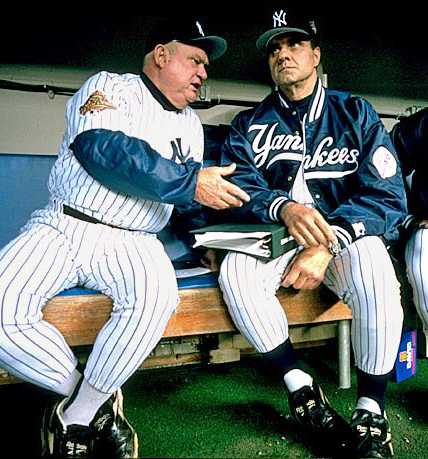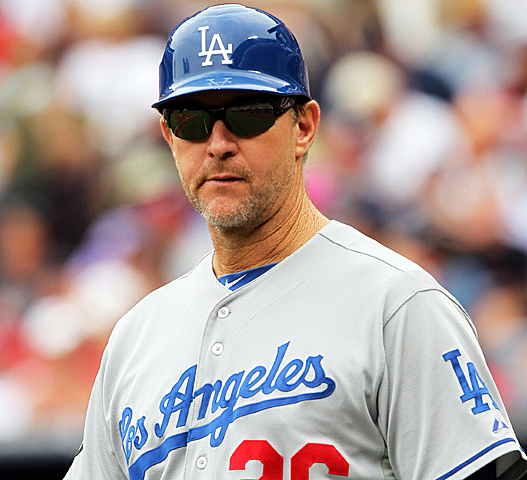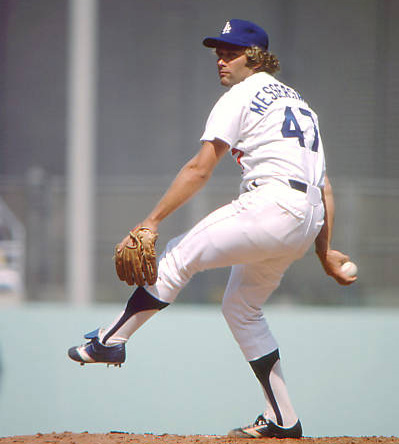The game of baseball has continued to evolve since I was a youngster captivated by Vin Scully and Duke Snider. The designate hitter was adopted by the American League in 1973. Free agency was born in 1976 with Andy Messersmith of the Dodgers and Dave McNally of the Montreal Expos considered to be the first MLB free agents. The average salary of major league baseball players was about $45,000 in 1975. By 2012 the average salary had risen to $3,400,000. The twin partners of free agency and escalating salaries has changed the whole dynamic of major leagues teams with rosters changing annually. Instant replay has started to creep into the game following the 2008 decision to use video replay to make home run calls in potentially disputed situations. More instant replay is on the way – soon. Amidst all the changes is the lingering agony of illegal steroid and human growth usage.
However, even though their have been significant changes in the game since 1952 when I began my lifelong journey as a Dodger fan, there seemed to be little change in the coaching ranks. That is, MLB teams have always had a manager, base coaches, hitting coaches, pitching coaches and a bullpen coach, even roving coaches to assist minor league players. That was before another coach appeared on the scene almost imperceptibly to the average fan, myself included. Slowly we began to notice another uniformed individual in the dugout, usually in the same TV clip as the manager. He often had a clipboard, perhaps now days computer print outs, and also often seemed to be chatting with the manager. On occasion it appeared they may be sharing a joke as they did share a laugh. More often it looked quite serious with hand gestures, eye brows raised, and at times almost appearing to whisper so perhaps the players close by could not hear what was being said.
This mystery man who can get the manager’s ear even in the most tense situations is the bench coach, a coach which all MLB teams now have. Since I became aware of his presence in the dugout I wondered what his officials duties are. The duties of other members of the coaching staff seem to be quite clear according to their descriptor – for example – a hitting coach. What does a bench coach do – coach the bench? Well, he certainly rides the bench. It’s time to confess. I didn’t really wonder what the bench coach does until it was reported or suggested that Tim Wallach might become the new Dodger bench coach replacing Trey Hillman – a move that was confirmed on Monday.
I think it is safe to say that the bench coach, who probably should be known as an assistant manager, serves at the behest of the manager. Joe Pettini, perhaps one of the better known bench coaches, served in that capacity with the Cardinals as Tony La Russa’s right hand man for several years. Briefly he outlined his role as bench coach.
“Mainly my responsibility when first getting here is to help set up the day’s routine, as far as the BPs, get the stretch times, set up the groups,” said Pettini. “Once the game begins, I’ve said that the bench coach’s role changes depending on the manager. The main job I do during the course of the game is help set up the infield positioning. I get together with Dave Duncan prior to every series to go over how we’re exactly going play each hitter in the infield, depending on whether he’s against a right hander or a left hander. What I do is I set it up in order and I go over it with each infielder before the series starts and during the games if they have any questions about where they are or where they should be,” added Pettini.
This is over simplifying his a role a bit but it demonstrates the significance of that role. And how can we ever forget Don Zimmer (aka: “Popeye”) sitting next to Joe Torre on the Yankee bench during Torre’s big run in New York whispering in Torre’s ear. Popeye, of course, downplayed his role. He stated that if a move worked he said, “Great move Skipper.” If the play didn’t work he headed off to the water cooler for a bit and just got out of the way.

There’s a pretty good chance that when Don Zimmer said something to Joe Torre, Torre listened to him. (Photo credit – Lynn Johnson)
What about the Dodgers and their bench coach situation? First, did you know the first modern bench coach was most likely the Dodgers’ own Pete Reiser. Pistol Pete served as Walter Alston’s assistant with the Dodgers in 1962. Gary Gillette, who edited the ESPN Baseball Encyclopedia, said Reiser told The Sporting News his duties included making suggestions about tactics, relaying signals and checking statistics — all part of the job today. Baseball does change slowly and there was not another bench coach until Ted Williams in Washington brought Johnny Pesky on board to sit next to him. That was seven years later in 1969.
Now we skip ahead 60 years and the bench coach position is on the front burner with Tim Wallach’s recent promotion. Having been interviewed for two managerial positions this year – Detroit and Seattle – suggests he is seen to have potential to become a manager, perhaps as early as next season. A bench coach position certainly offers some incentives to those aspiring to manage at the MLB level. There will be increased pay and increased responsibility having the opportunity to gain the confidence of the manager in serious decision making. Perhaps most importantly for the individual is that the bench coach position is an incubator for managers. When Tim interviewed for the Seattle Mariners the other finalists were A’s bench coach Chip Hale, Padres bench coach Rick Renteria and White Sox bench coach Joey Cora, although the more experienced Lloyd McClendon was eventually hired. Look for Hale and Cora to become managers in the not too distant future and Renteria was recently signed to manage the Cubs.

For as good as Tim Wallach was as a third base coach, he will be an even better bench coach. (Photo credit – Joe Murphy)
I am pleased Tim Wallach has been given the opportunity to move up the leadership chain with the Dodgers. When Don Mattingly gets tossed from a game or is suspended by the league, one of which will most likely happen in 2014, Tim will indeed get the opportunity to mange. I hope both Mattingly and Wallach have great seasons in 2014. Great seasons would include a World Series appearance for the Dodgers and a managerial appointment with a MLB team in 2015 for Tim.




 November 12th, 2013 at 6:00 am
November 12th, 2013 at 6:00 am  by Harold Uhlman
by Harold Uhlman 
 Posted in
Posted in 

Thanks BD, for pointing out some of the duties of a bench coach which has always been a mystery to me other than figuring that he assited the manager.
I’m happy and I’m sure most Dodger fans are to see one of their own promoted to the position and I can’t help thinking that there was a very important reason for the Dodgers to have a new bench coach. Let’s hope that this change will make the team even better in the near future.
Great read, Harold.
I always loved seeing Zim in the dugout with Torre. I had the opportunity to meet him and talk with him at camp – what a great guy, not to mention he was a great infielder for the Dodgers, too. (He’s the one on the right).
A bench coach is a member of the coaching staff who works closely with the manager to make decisions. He is the team’s second-in-command and serves as the manager’s right-hand man.